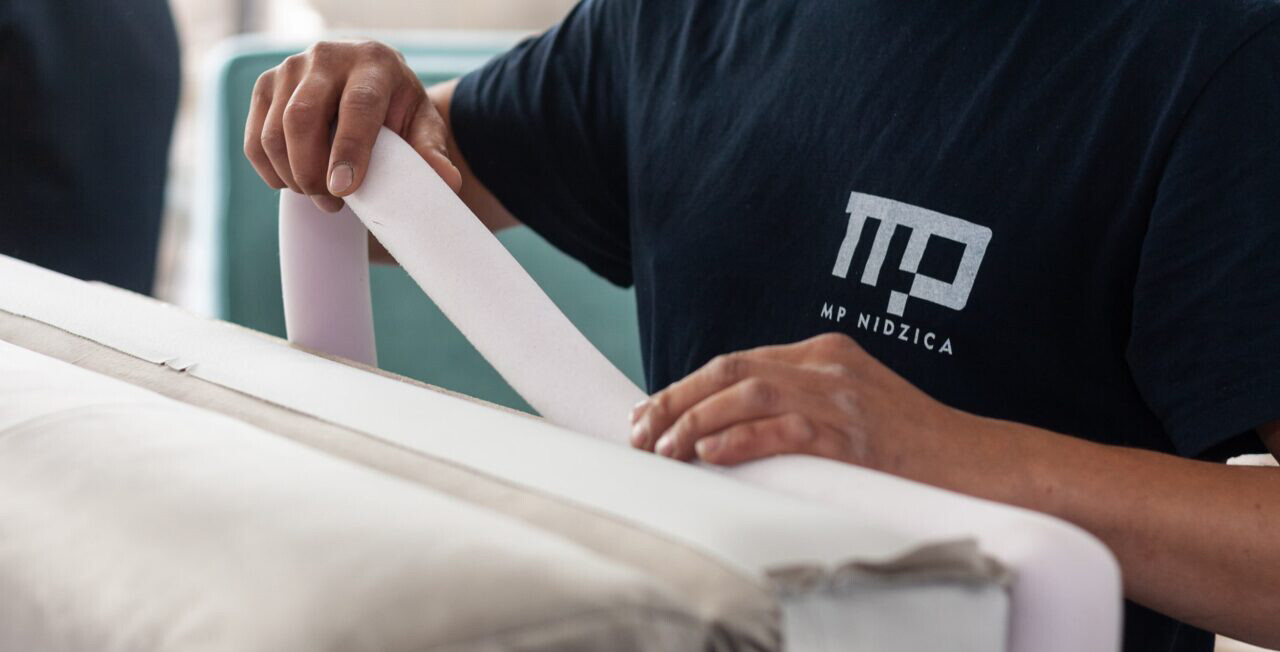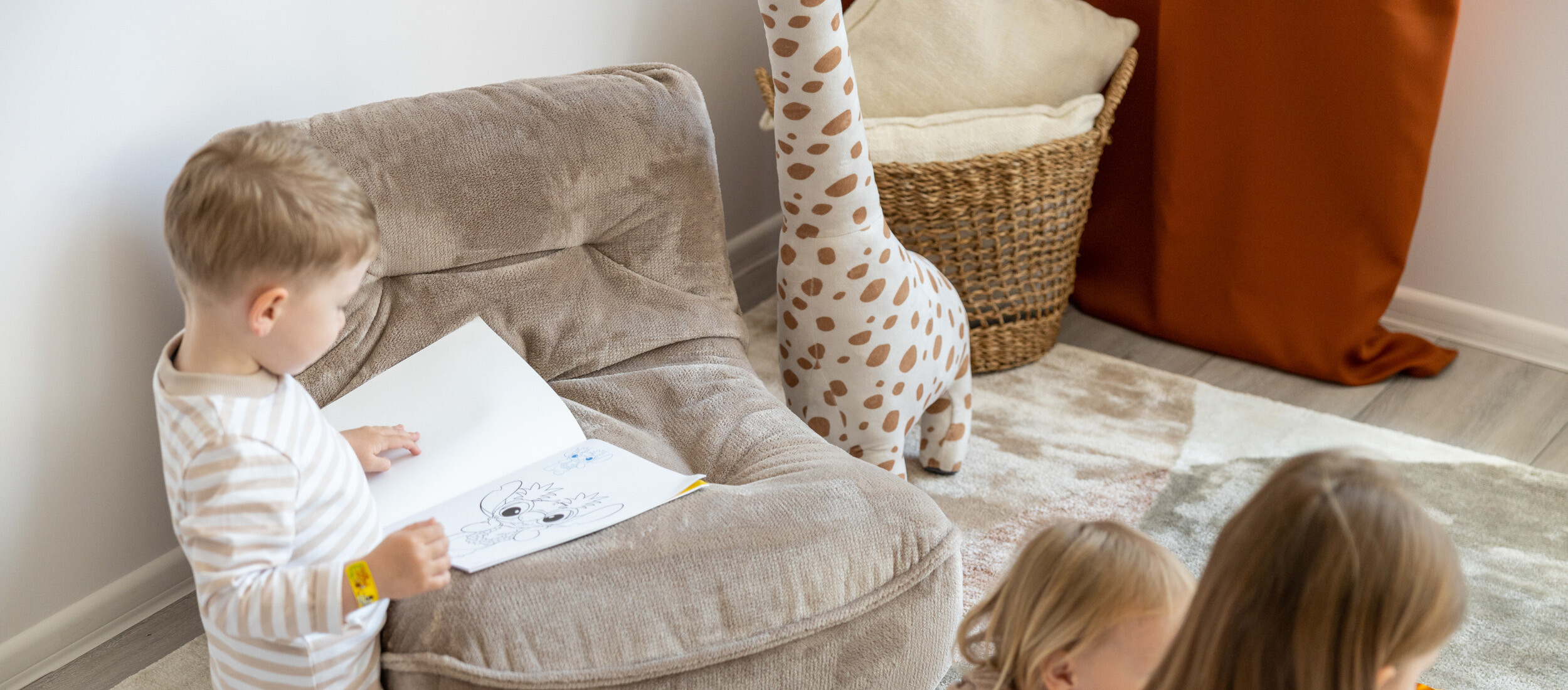
From garage craft to global platform
The company’s roots are firmly in artisanal tradition. Nearly 30 years ago, founder Dariusz Tadeusz Popławski built two sofas in his garage, loaded them onto a borrowed trailer, and drove over 200 kilometres to a store he thought might be interested. The store bought them — and ordered more. That one sale grew into a thriving business that remains family-owned, now also led by his children, daughter Malwina Popławska Klamra and son Michał Popławski with the founder’s expertise still guiding the team.
Today, MP Meble employs around 70 people and produces 20,000 sofas per year. Each piece is the result of work by 11 skilled specialists, from carpenters to upholsterers to quality inspectors — a process that keeps every stage of production firmly in the company’s own hands.
The strength of “Made in Poland” craftsmanship
MP Meble’s identity is tied to its “Made in Poland” promise: precision, durability, and flexibility in design. From sturdy frames of carefully selected wood to meticulously sewn and stretched fabrics, the company maintains full control over quality. Customers can configure their sofas — choosing layouts, fabrics, colours, and added features like bedding boxes or sleeping functions.
As Malwina notes, “We want our customers to understand that Polish craftsmanship is worth the investment — furniture that will serve them for many years.” This high level of customization and attention to detail sets the company apart in a global market dominated by mass production.
Taking handmade products to a global audience
For years, MP Meble focused mainly on the Polish market. After the pandemic, the team wanted to explore new territories but faced the typical challenge of handmade manufacturers: how to connect directly with serious buyers abroad. In February 2023, a business partner recommended europages — the B2B marketplace for connecting manufacturers with buyers worldwide.
The results were immediate. International inquiries arrived from wholesale distributors in Germany, boutique furniture stores in Scandinavia, and hospitality projects in the Middle East. A standout request came from a foreign client looking for eco-friendly sofas with minimal plastic and synthetic components. Although this was new for MP Meble, the team adjusted their designs and processes to meet the requirements. “We first created one model for this customer, but the experience taught us so much that we now offer four eco-friendly sofas in our own collection — with more already in development,” says Malwina, emphasizing the valuable knowledge gained from working with new customers.
-1200x560.png)
Overcoming traditional barriers for handmade products
One major advantage of europages for a handmade manufacturer is overcoming language barriers. Even without speaking a customer’s language, the requests and responses on europages are delivered in the correct language automatically. As Malwina puts it, “The translation asset on europages is a big help and would have been unthinkable in the past — it’s international trade within two clicks.”
Europages also provides market insights with the Business Insights data set, showing which products get the most attention and from which regions. This allows MP Meble to refine its offer based on real demand, something especially valuable for handmade products where production is often adapted per order. “It’s like having a clear view of what buyers around the world are looking for — it makes our decisions faster and more precise,” Malwina adds.
Expanding reach without losing identity
Selling handmade products internationally often raises fears of losing artisanal character. MP Meble demonstrates that, with the right platform, it’s possible to maintain quality, customization, and personal service while expanding reach. “I highly recommend working with europages and making the most of the opportunities it provides. In today’s world, where almost everyone is online and the internet is the key to reaching new customers, europages’ services can deliver excellent results for companies aiming to grow and enter new markets”, Malwina sums up the cooperation.
How europages helped:
- Global exposure for handmade goods: Made-to-order products reached buyers in multiple countries.
- Product innovation: Custom requests via europages inspired new eco-friendly product lines.
- Market insight: Data on product interest guided development of future collections.
- Barrier-free communication: Automatic translations enabled smooth discussions with international buyers.
What We Can Learn from MP MEBLE:
- Craftsmanship can scale: Handmade products can perform strongly on global B2B platforms.
- Sustainability drives demand: Eco-friendly adaptations can open entirely new markets.
- Data empowers artisans: Market analytics can inform even small-batch, customized production.
- Digital bridges work: The right platform connects artisanal makers directly with serious buyers worldwide.

